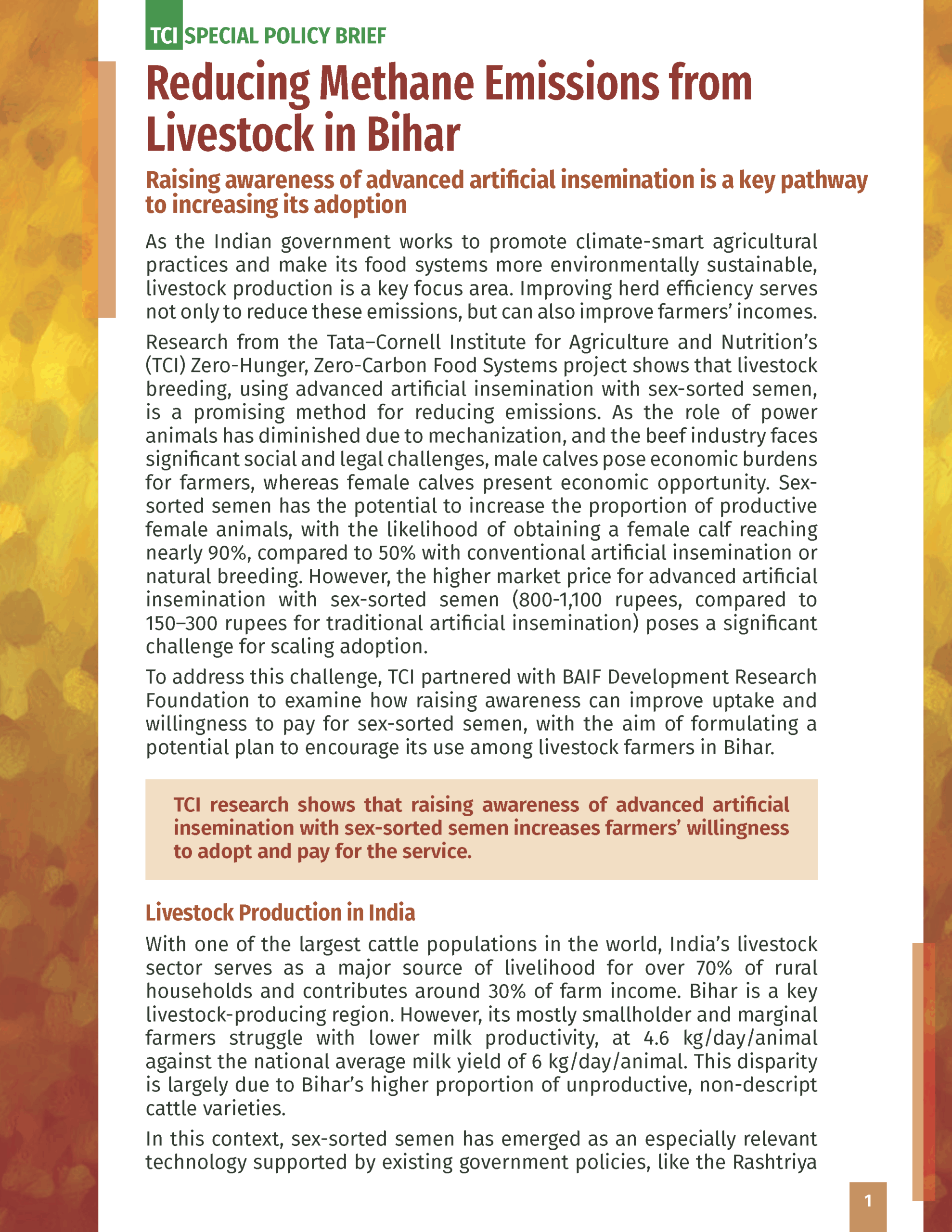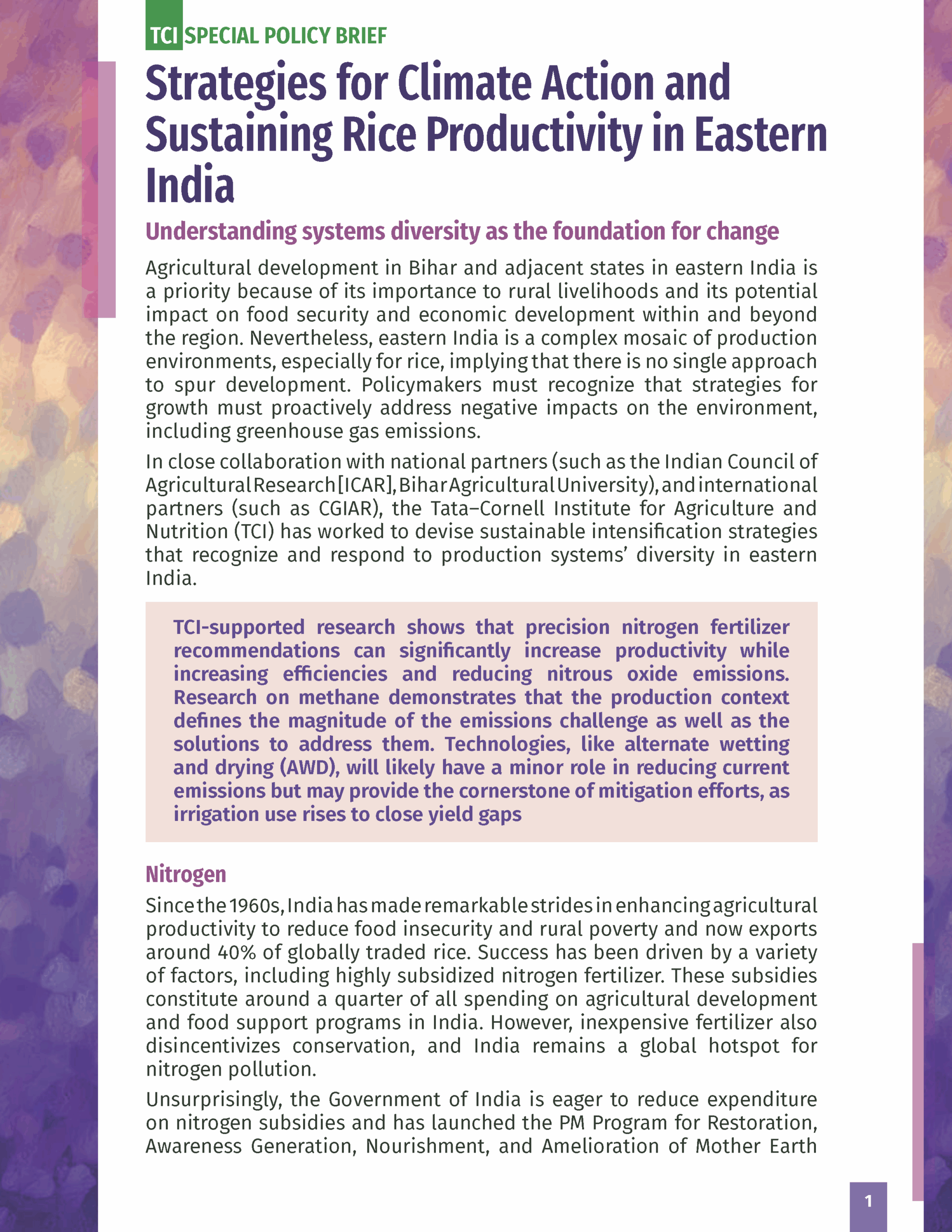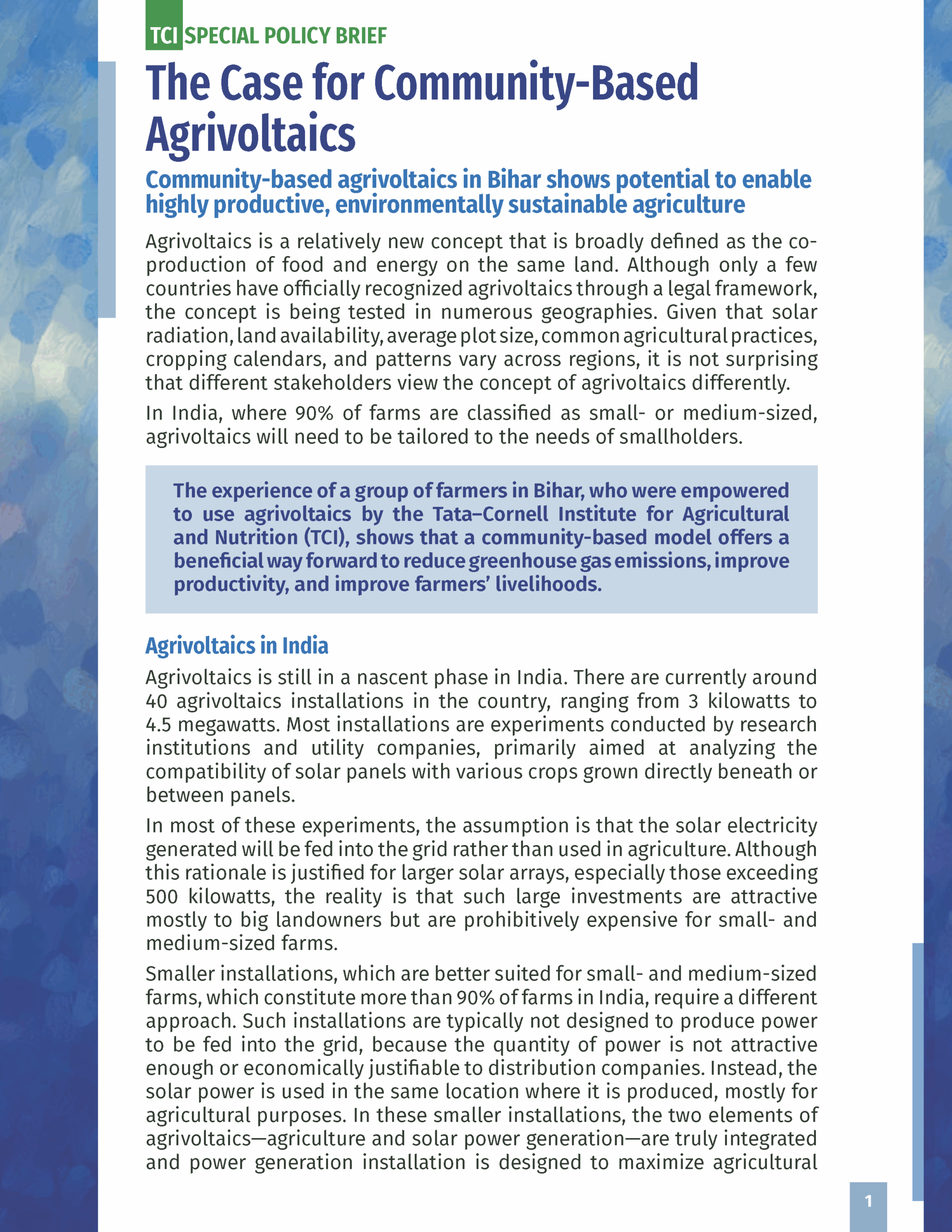Tag: Zero-Hunger Zero-Carbon Food Systems

Selling Bihar’s Livestock Farmers on Climate-Smart Technologies
Across Bihar, livestock rearing is central to rural livelihoods. Yet low productivity, high input costs, and rising methane emissions pose long-term challenges for both farmers and the environment. Bihar has one of the largest cattle populations in India, but productivity…

A Multi-Use Agrivoltaics Model for Smallholder Communities
India, like many countries around the world, faces the daunting challenge of increasing food production to feed its growing population while attempting to mitigate the effects of climate change by reducing its greenhouse gas emissions. In this context, agri-photovoltaics (agrivoltaics…

In Bihar, TCI Presents a Path for Productive, Climate-Smart Agriculture
The Tata-Cornell Institute for Agriculture and Nutrition (TCI) unveiled evidence for three pathways to make agriculture in Bihar more productive and environmentally sustainable at an event in Patna on October 16. The event was attended by government officials, researchers and…

Reducing Methane Emissions from Livestock in Bihar
This special policy brief presents preliminary results from a TCI study on the impact of awareness campaigns on farmer adoption of advanced artificial insemination with sex-sorted semen for livestock breeding, a potential pathway for increasing productivity and reducing methane emissions from livestock production in Bihar....

Strategies for Climate Action and Sustaining Rice Productivity in Eastern India
This special policy brief presents the results of TCI-supported studies aimed at enhancing the productivity of rice farms and reducing greenhouse gas emissions from rice production in Bihar. It examines strategies for increasing the efficiency of nitrogen fertilizer usage and demonstrates that the production context...

The Case for Community-Based Agrivoltaics
This special policy brief presents the benefits of community-based agrivoltaics for smallholder farmers in India, based on a pilot agrivoltaics site that TCI built with a group of farmers in Bihar. The brief provides an assessment of how agrivoltaics can help reduce greenhouse gas emissions,...

TCI Publishes 2024–25 Annual Report
The Tata-Cornell Institute for Agriculture and Nutrition (TCI) has published its 2024–25 Annual Report.
The report offers an in-depth look at the full range of TCI’s research and other activities, including grant-funded projects like the Zero-Hunger, Zero-Carbon Food Systems project…

Farming the Sun, Cultivating Hope: How Agrivoltaics in Nawada Builds Resilience and Community
When I first began working with farming communities in Rwanda, I discovered a truth that has shaped my perspective on development ever since: real transformation does not come from technology alone—it comes from people. It comes from communities standing together,…

Assessing Livestock Farmers’ Willingness to Pay for Sex-Sorted Semen
With one of the largest cattle populations in the world, India’s livestock sector serves as a major source of livelihood for over 70% of rural households and contributes around 30% of farm income. India’s milk production has consistently grown in…

TCI Inaugurates Bihar’s First Agrivoltaics Site
The Tata-Cornell Institute for Agriculture and Nutrition (TCI) and Preservation and Proliferation of Rural Resources and Nature (PRAN), along with Jain Irrigation Systems, celebrated the inauguration of an agrivoltaics installation in Bihar’s Gaya ji district on Monday, June 9. The…

